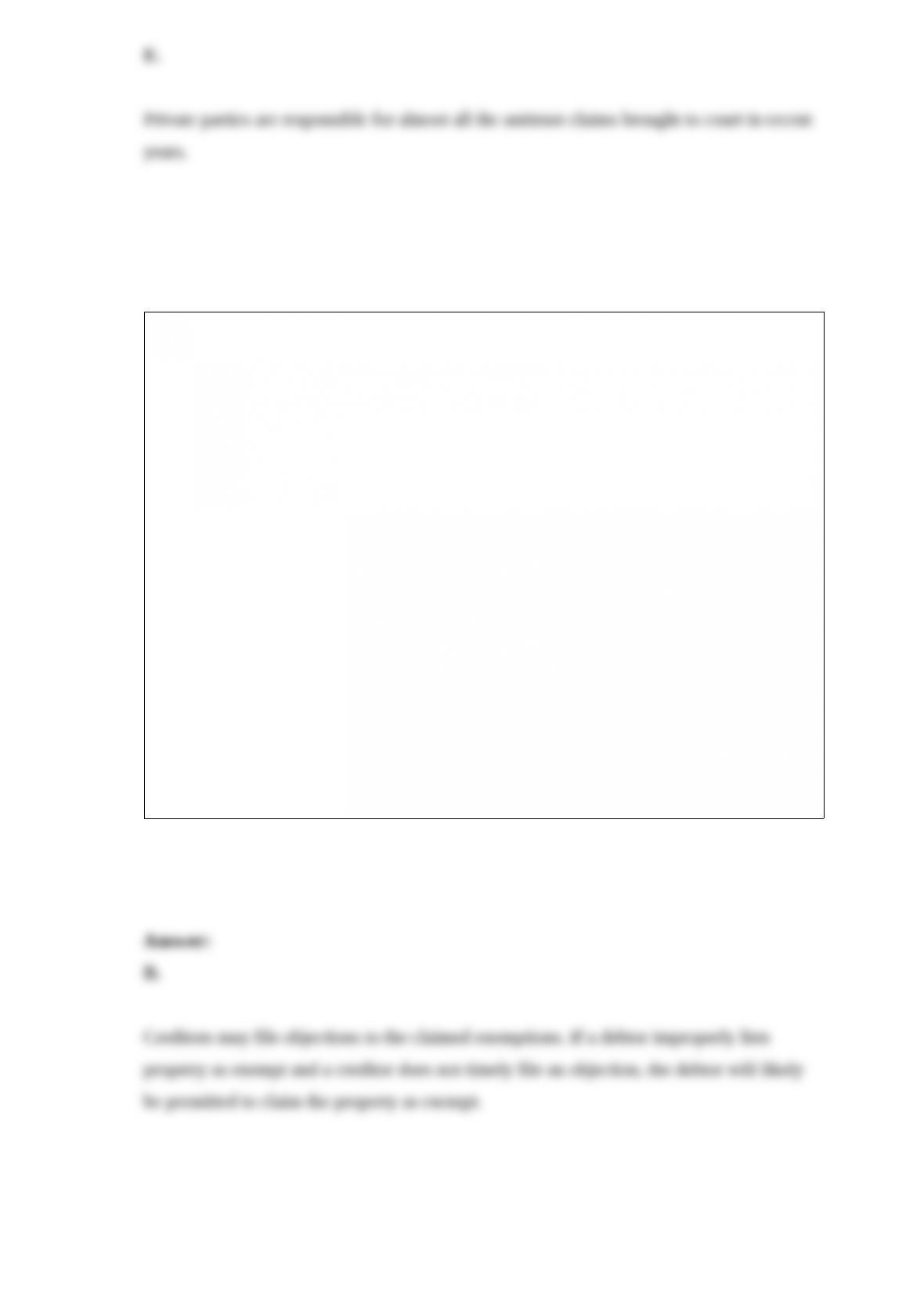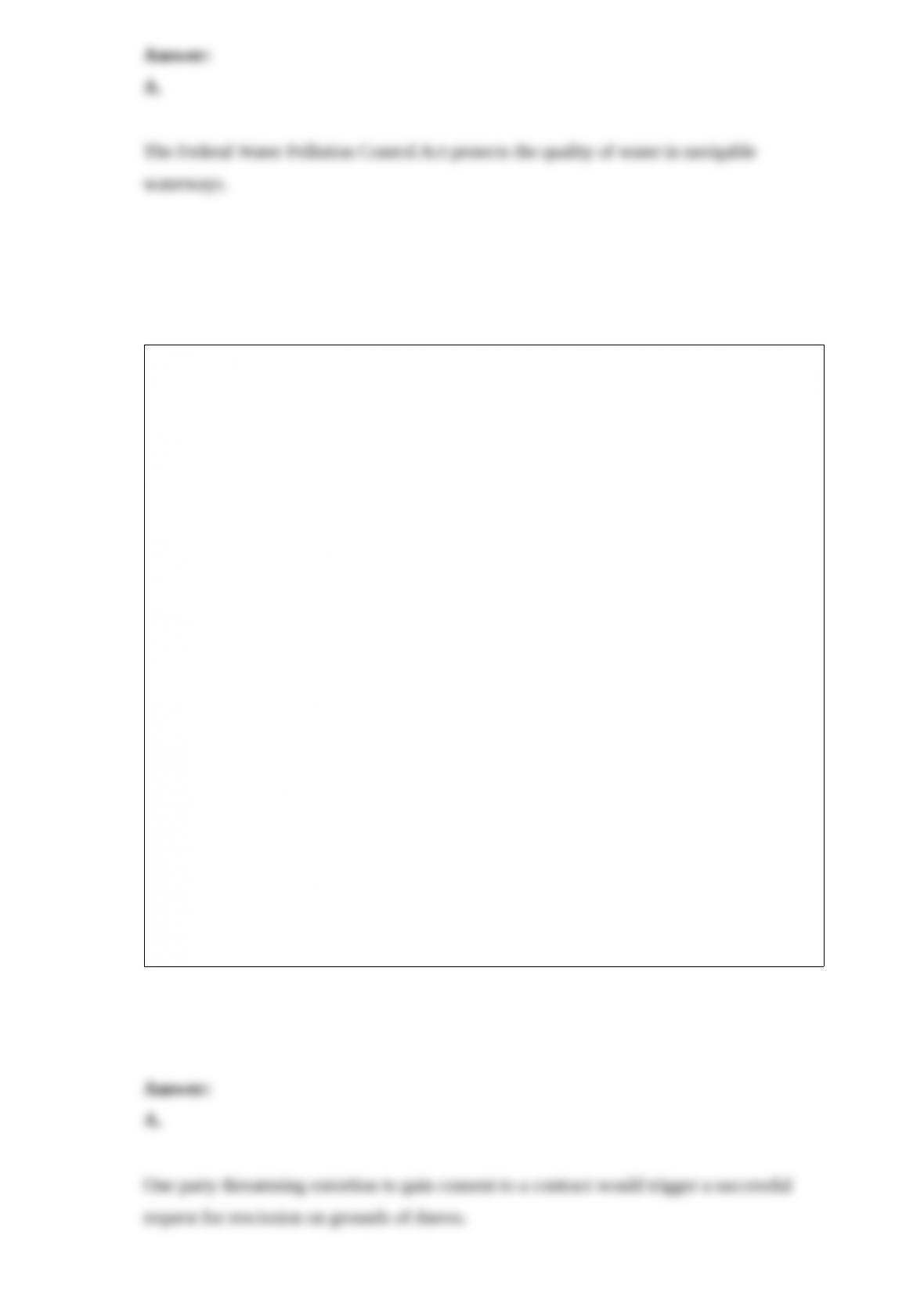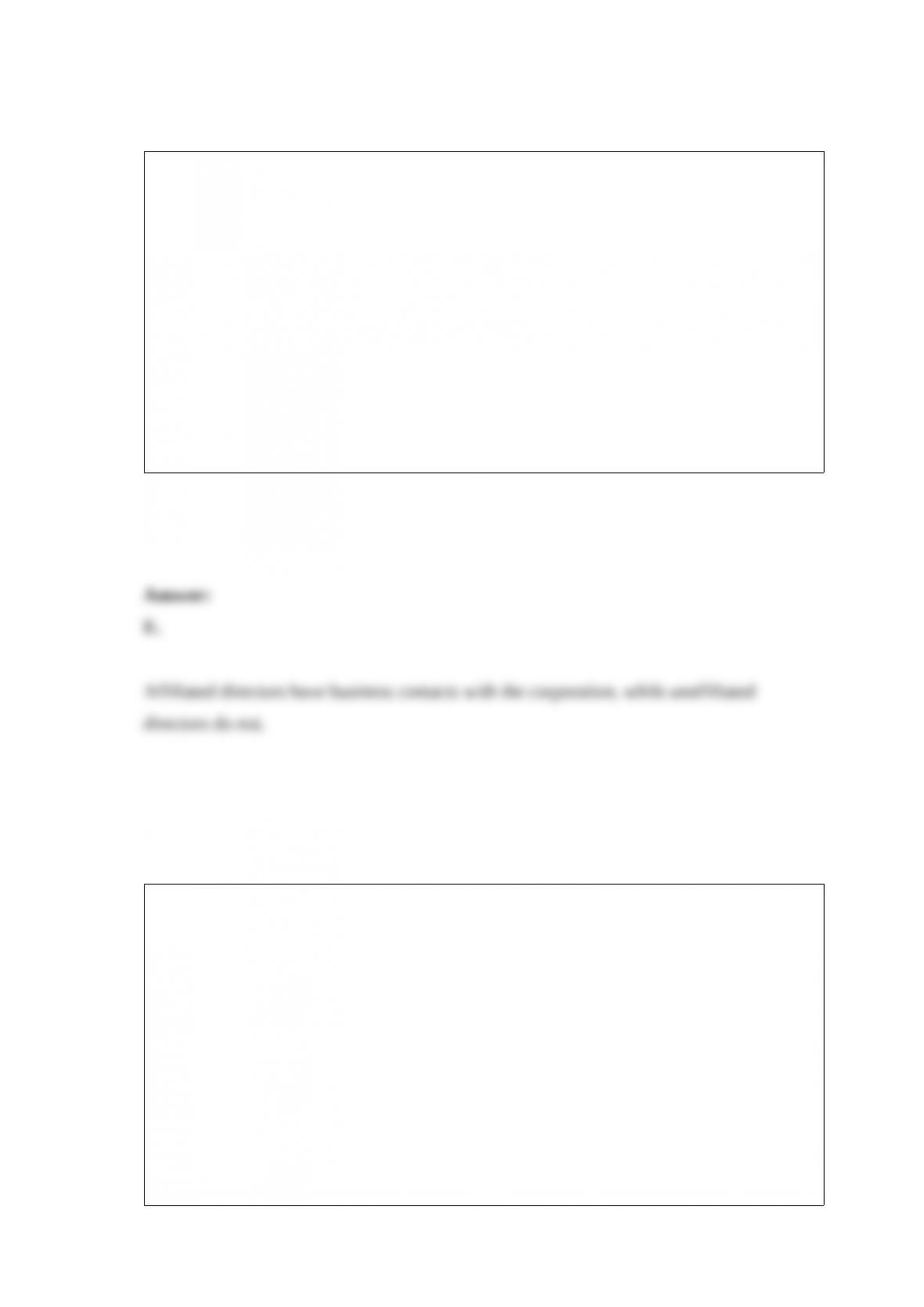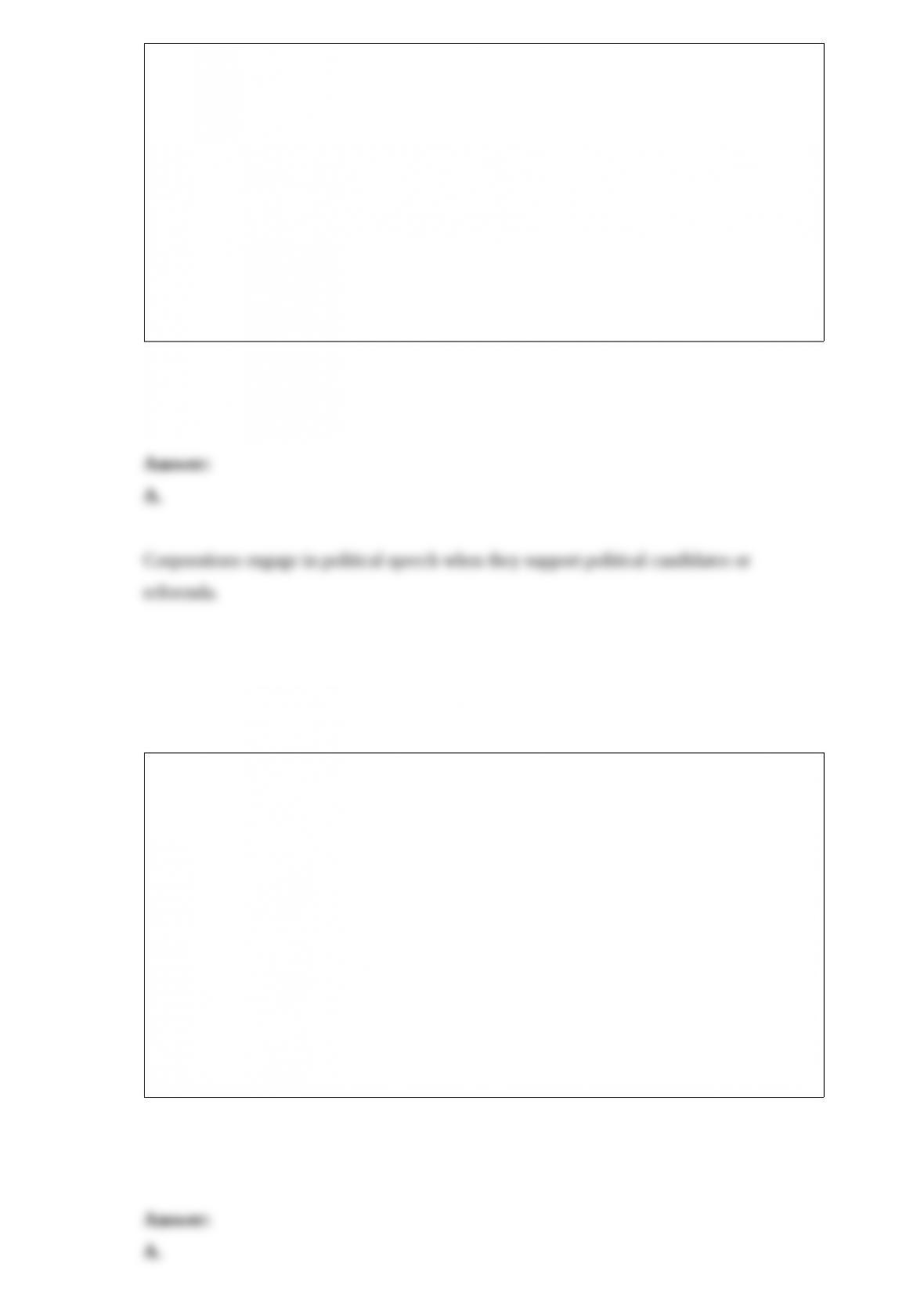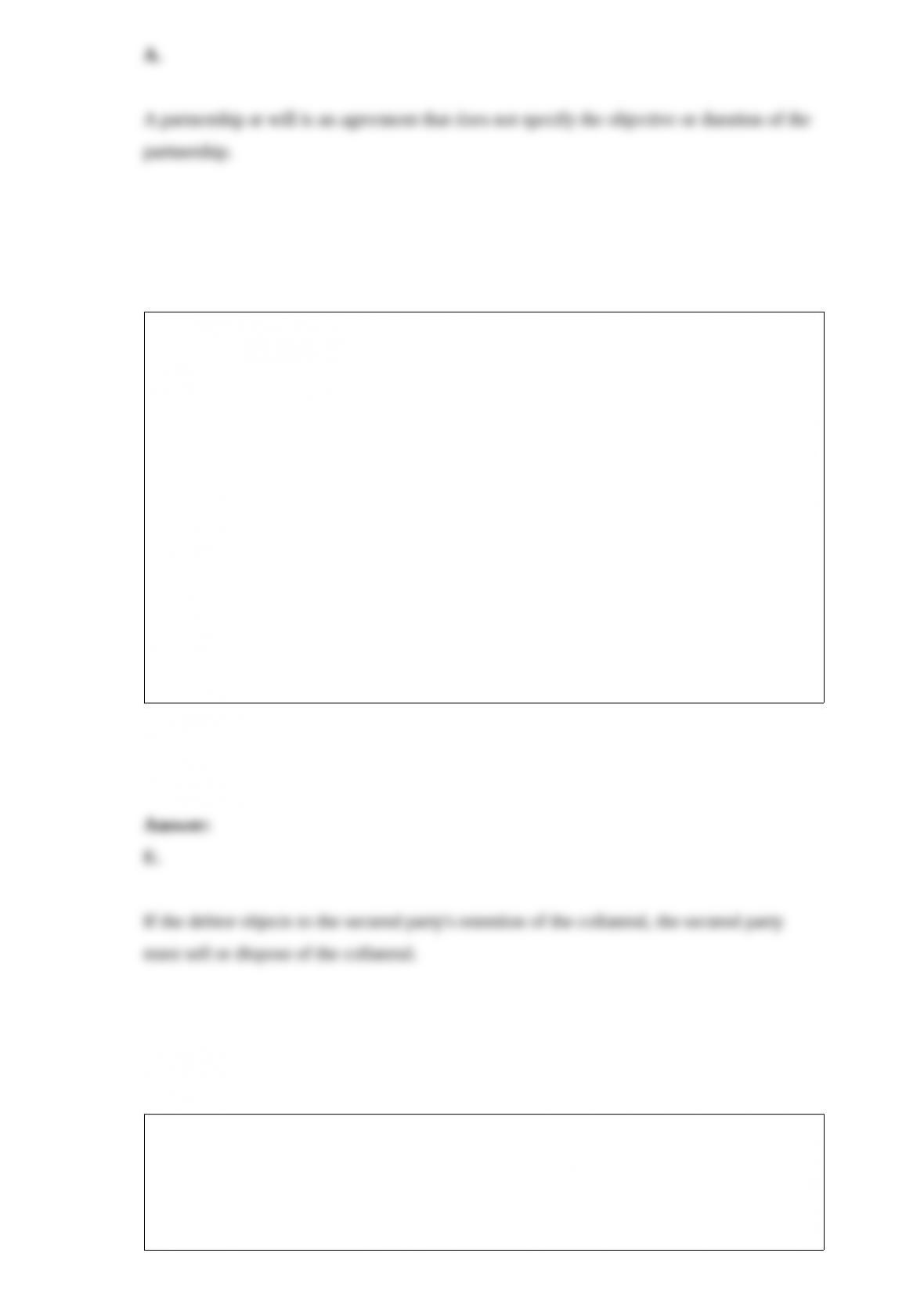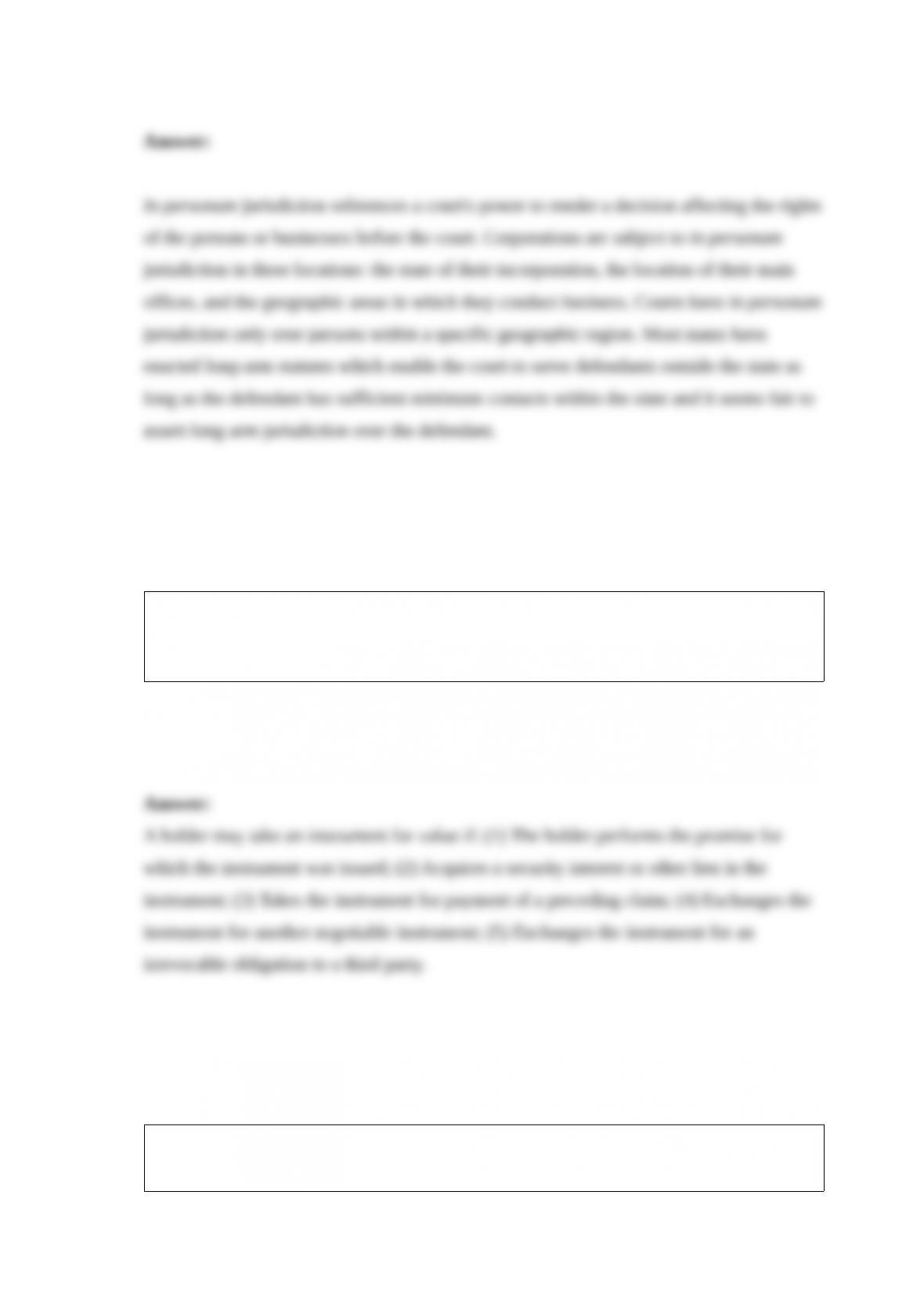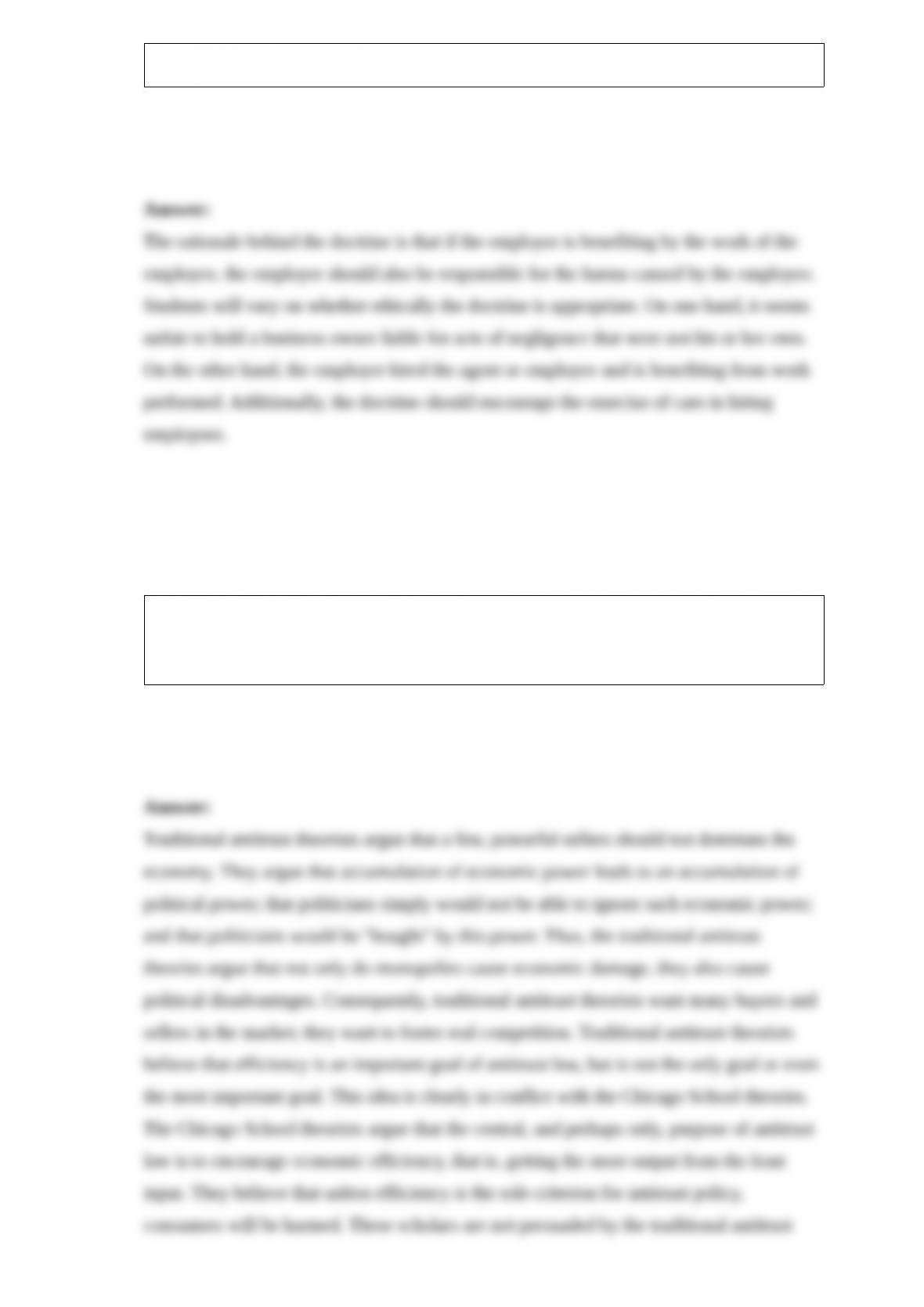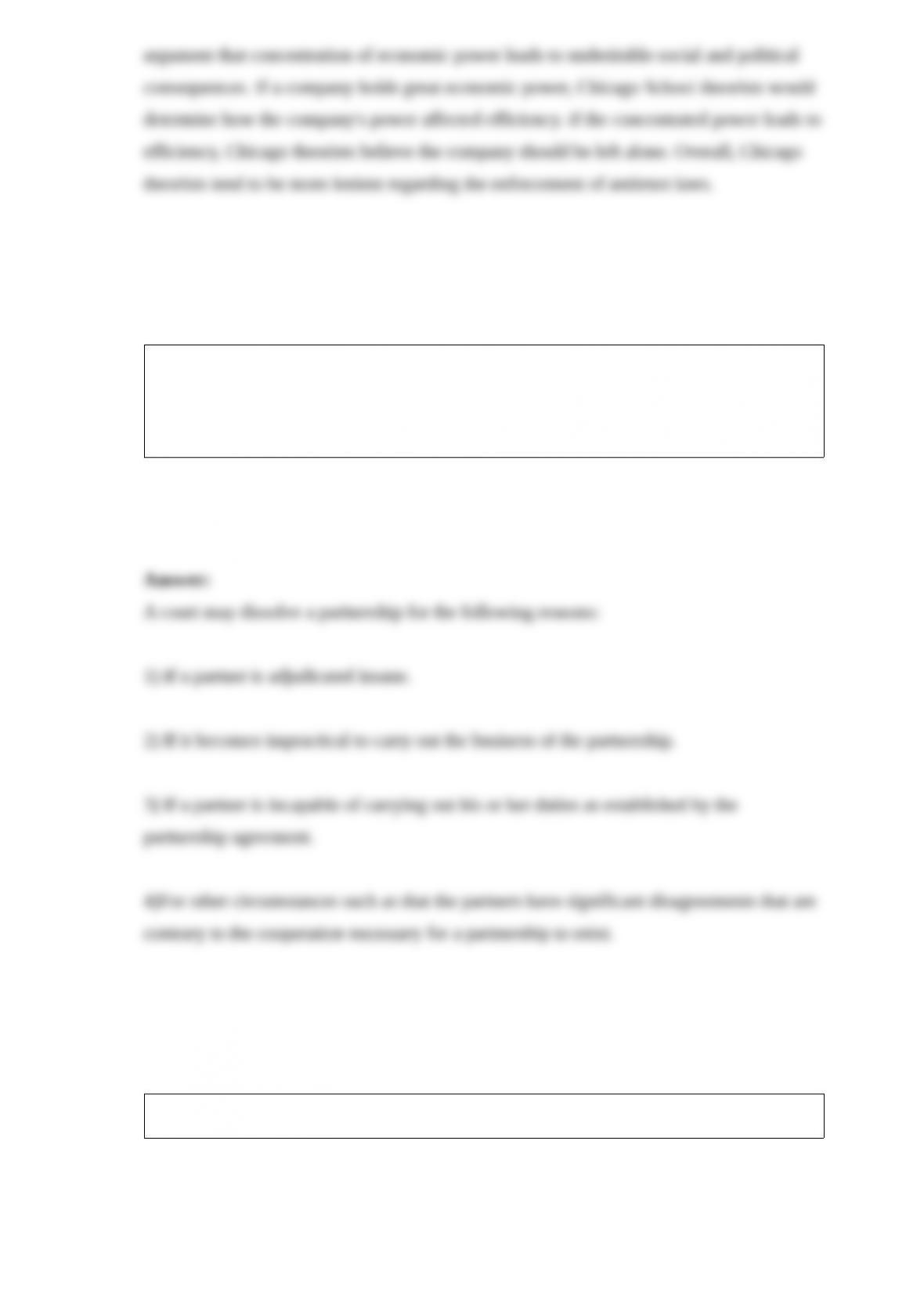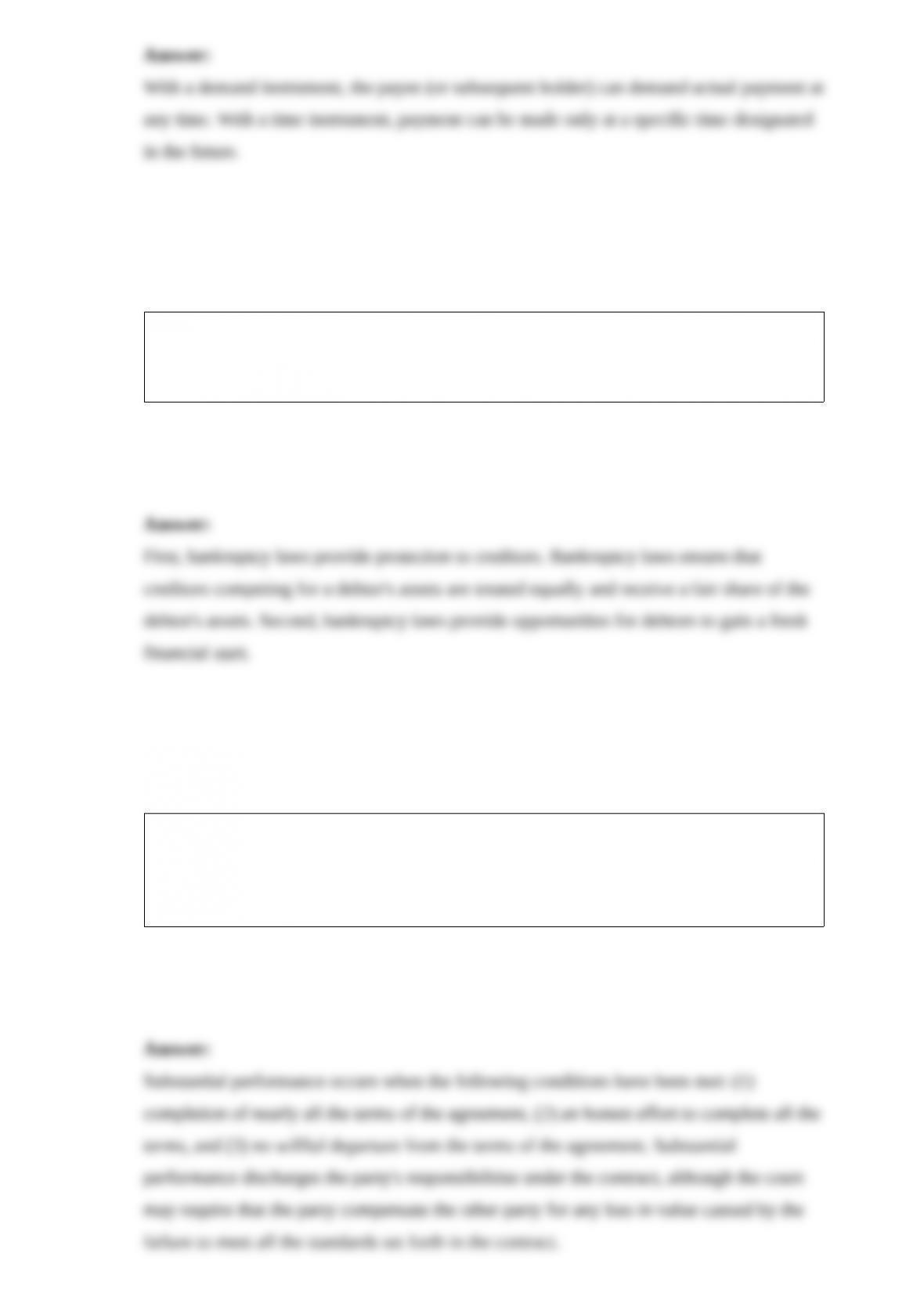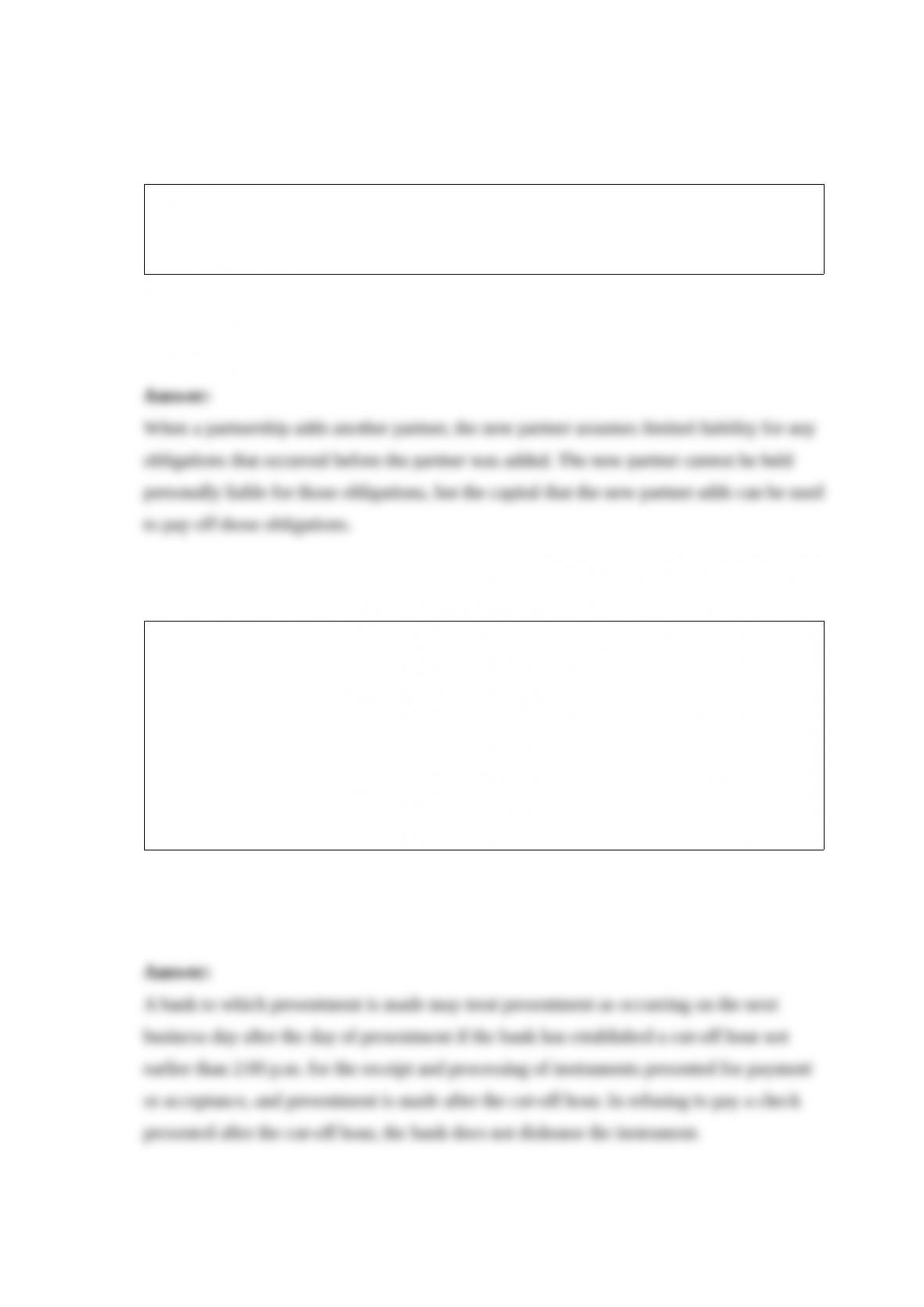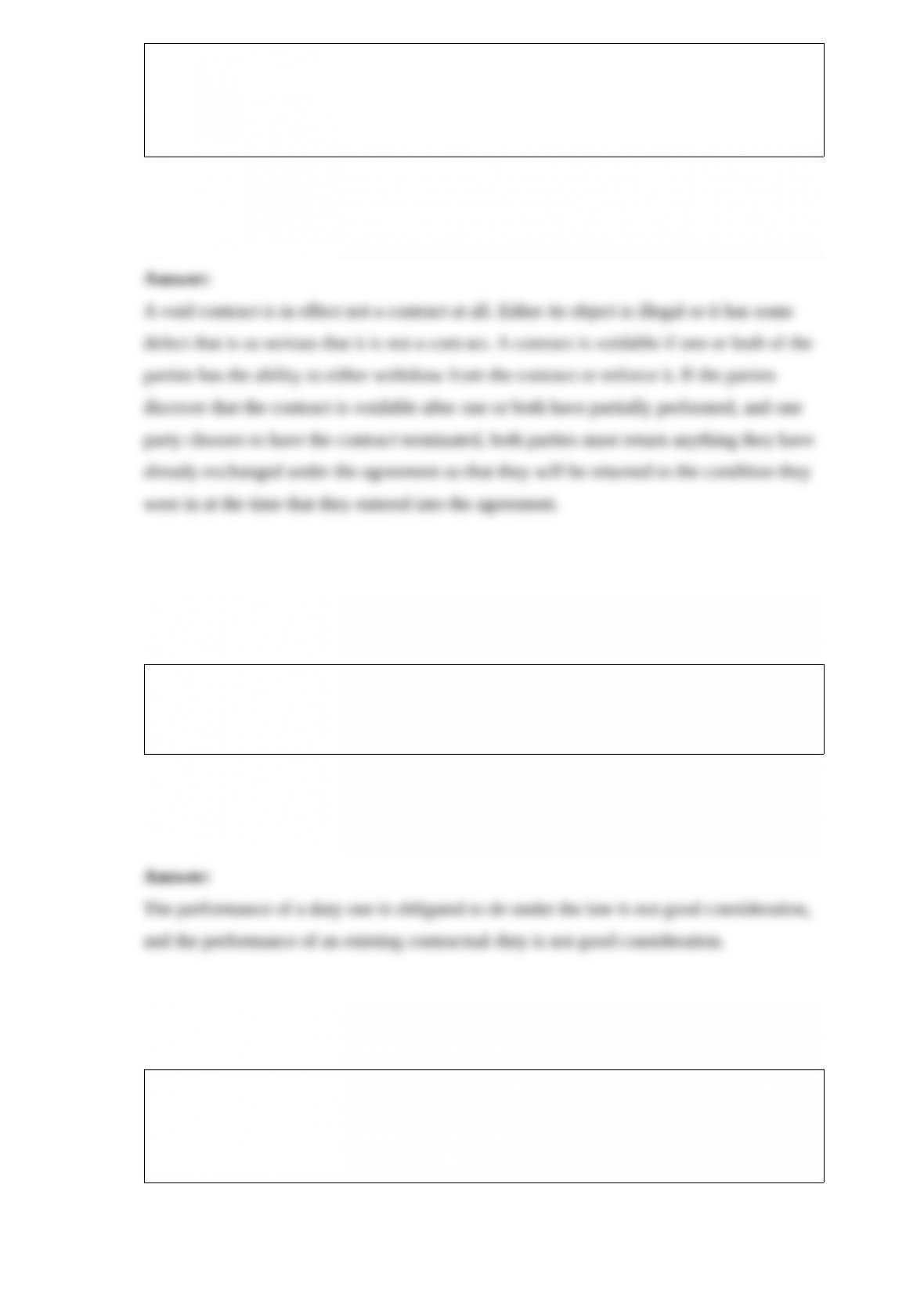Trevor, asked for a private office. Trevor had been significantly burned. Prudence asked
him why he needed a private office. Trevor replied that while nothing was physically
wrong with him, he was tired of everyone treating him as if he had a disability. He said
that the treatment he received interfered with his everyday life and work activities.
Prudence denied his request explaining to him that he needed an actual documented
physical disability before being covered by the act. Finally, George, who had undergone
knee surgery, asked that Prudence put in another elevator near his work station.
Prudence explained that his office could be moved nearer to the existing elevator, but
George told her that under the Americans with Disabilities Act, she did not have the
right to dictate to him when his doctor said that he should not be climbing stairs.
Nevertheless, Prudence denied his request for a second elevator noting that no other
employees needed a second elevator. Samantha, Trevor, and George got together and
decided to go directly to federal court and sue under the Americans with Disabilities
Act to challenge Prudence's decisions.
Assuming George can establish that he is covered under the Americans with Disabilities
Act based on an actual physical disability, which of the following is true regarding any
duty of Prudence to provide George with a second elevator?
A. Since he is covered under the act with an actual physical disability, she must grant
his request regardless of cost.
B. She is not required to accommodate him under the act until his doctor certifies that
he has reached maximum medical improvement and will not get any better.
C. She will likely be required to put in the second elevator because under the act, an
employee is not supposed to be asked for any accommodation by the employer.
D. She will likely not be required to put in the second elevator because George can
move his office, and putting in a second elevator would probably be an undue hardship
on the employer.
E. She will likely not have to put in a second elevator because it will not benefit other
employees, and an employer only has to make a change to a building as an
accommodation under the act if the change will benefit a substantial number of
employees.



























